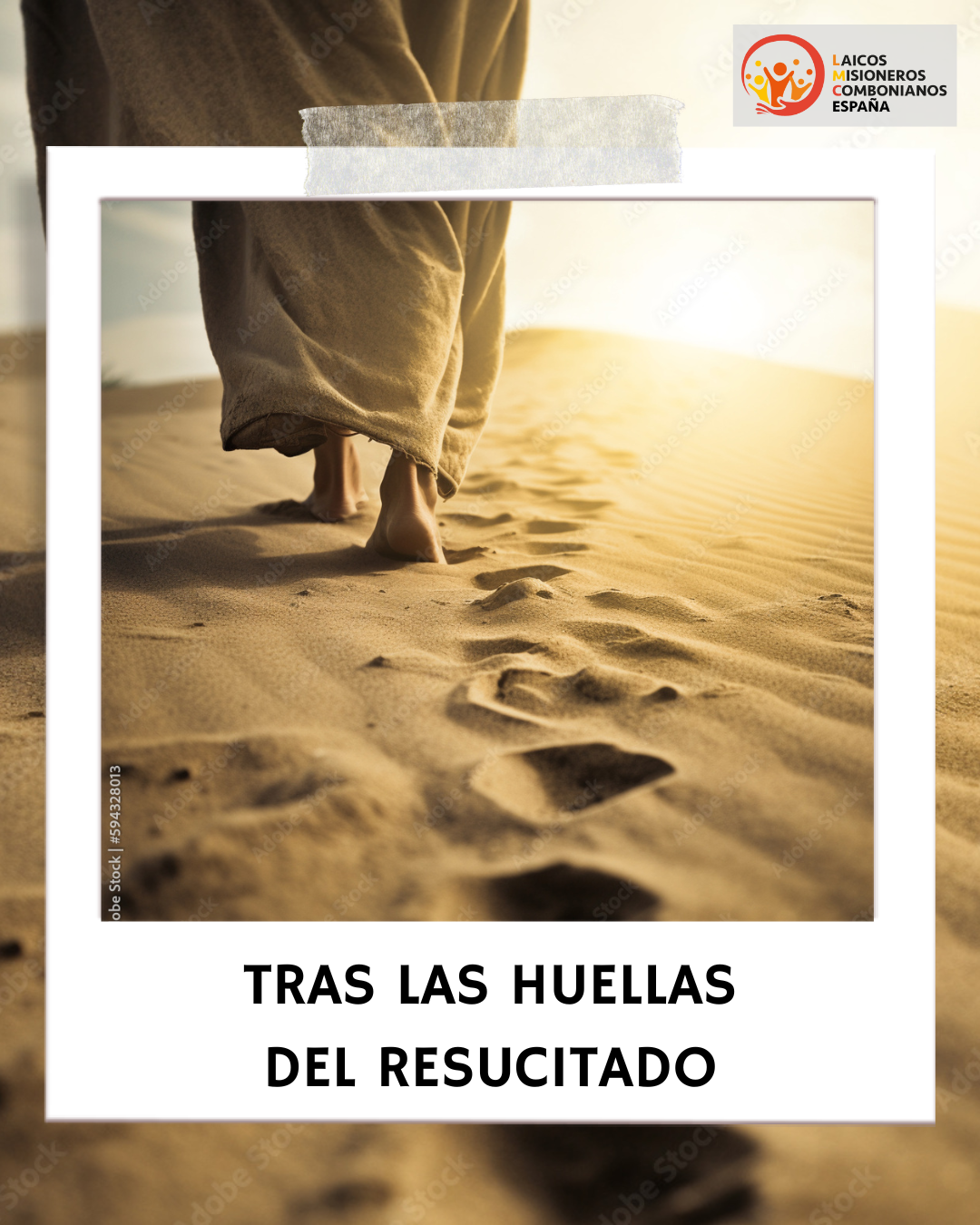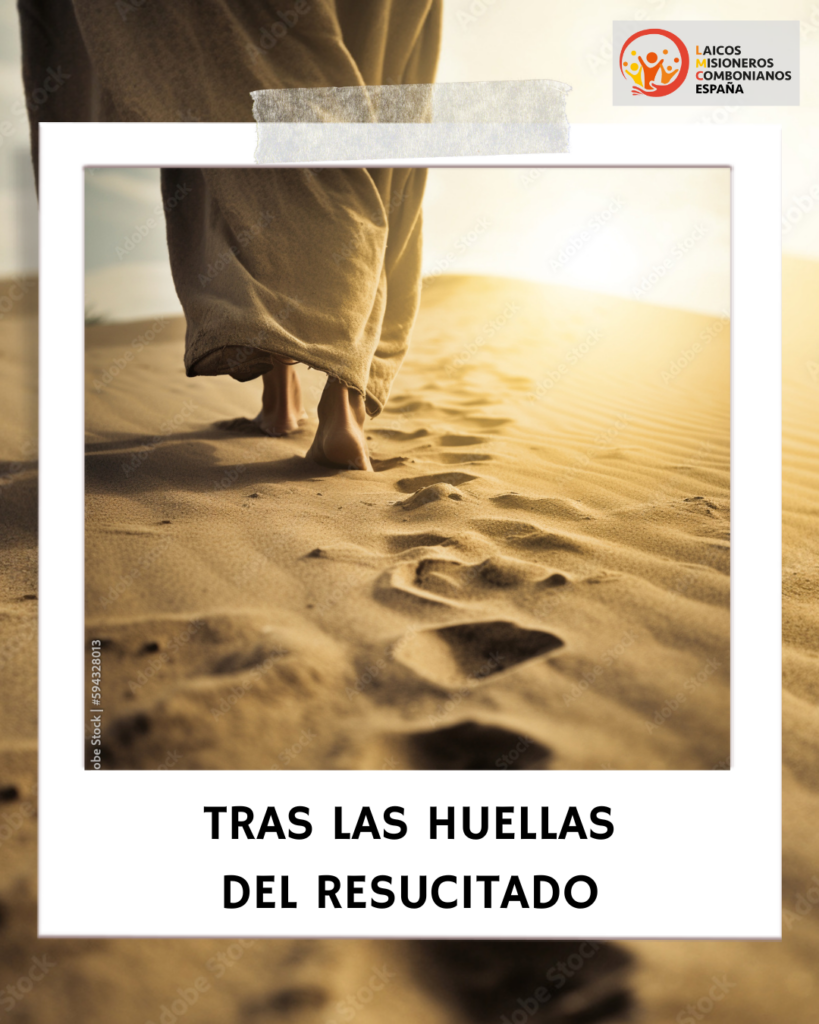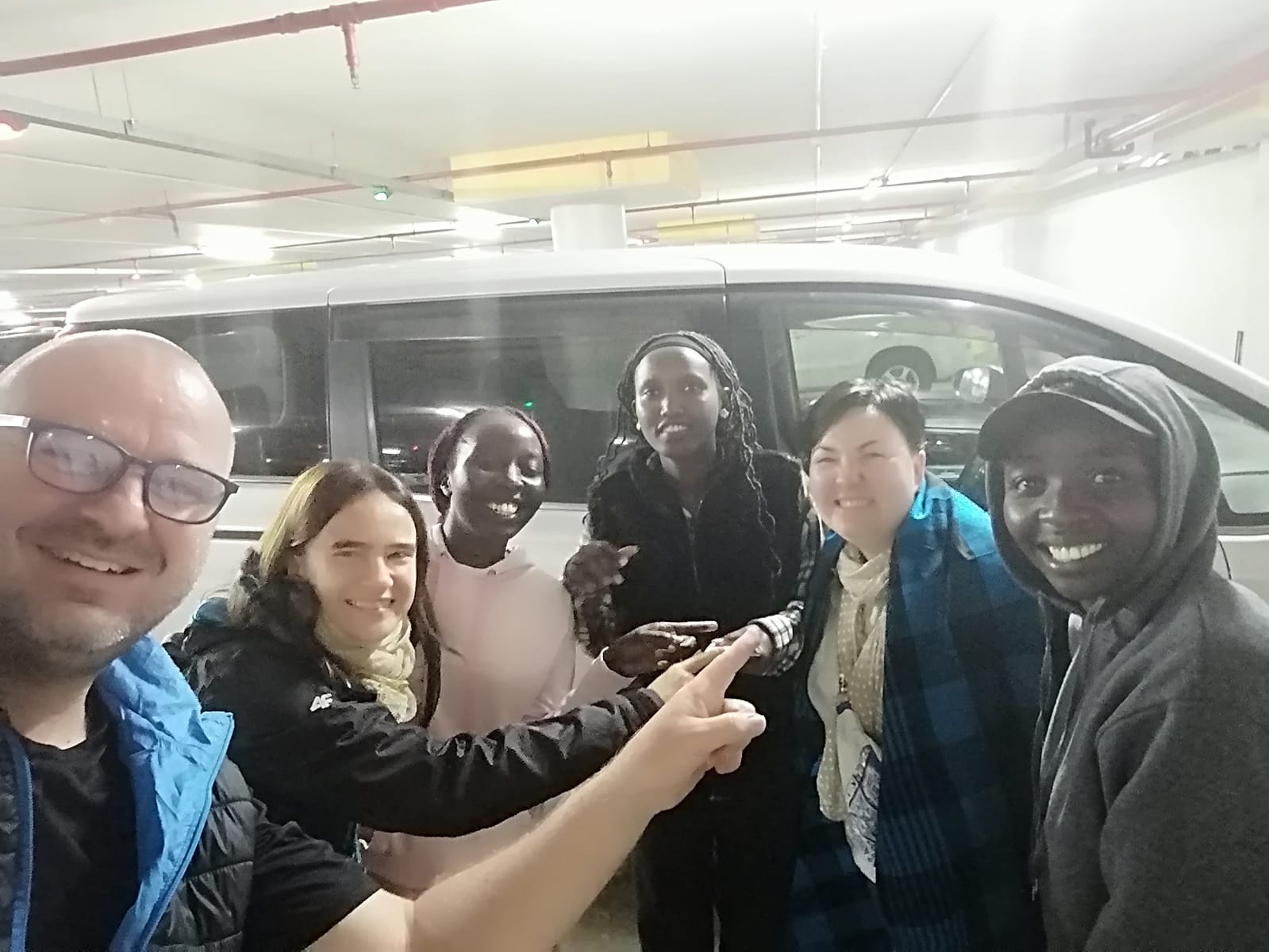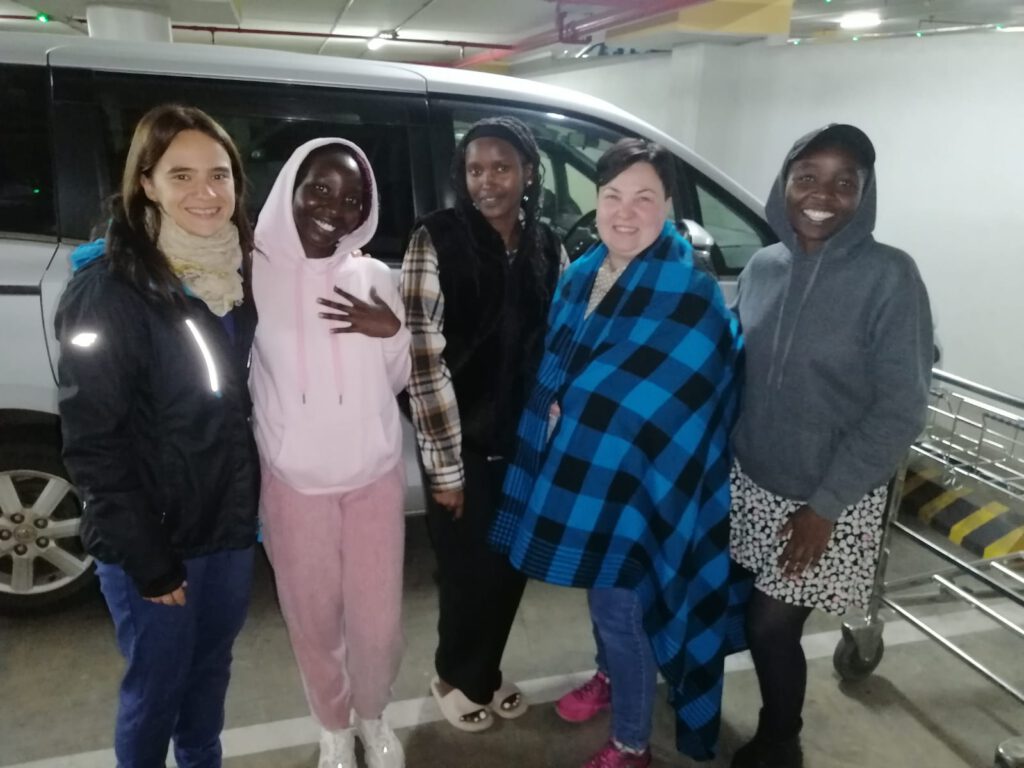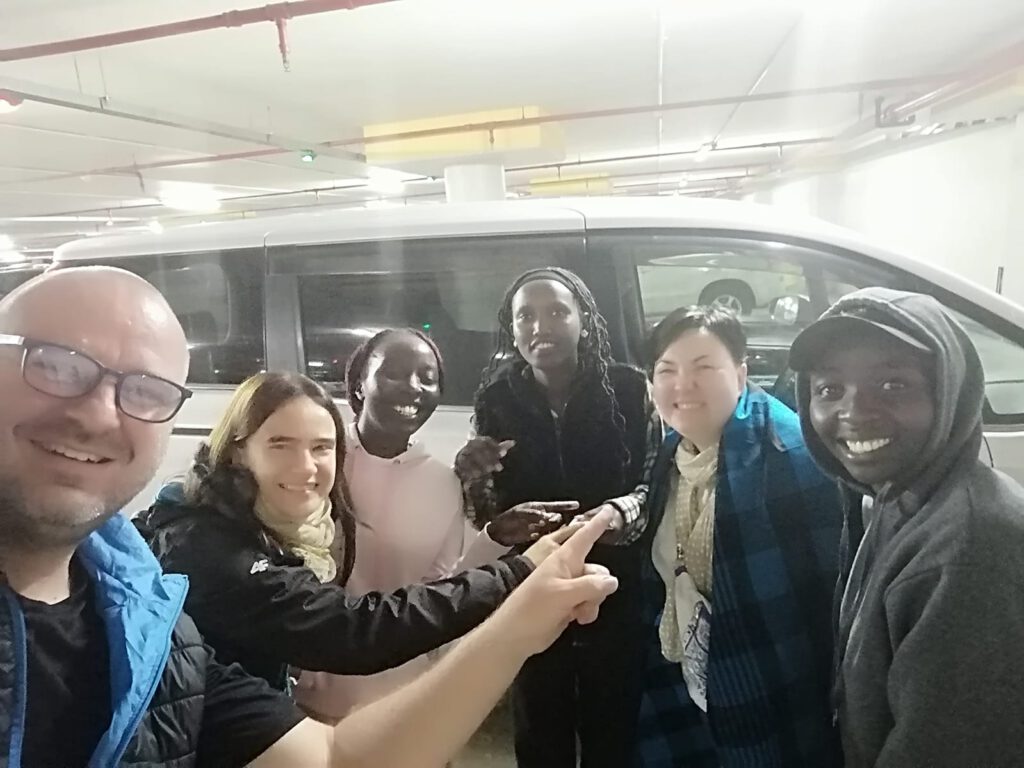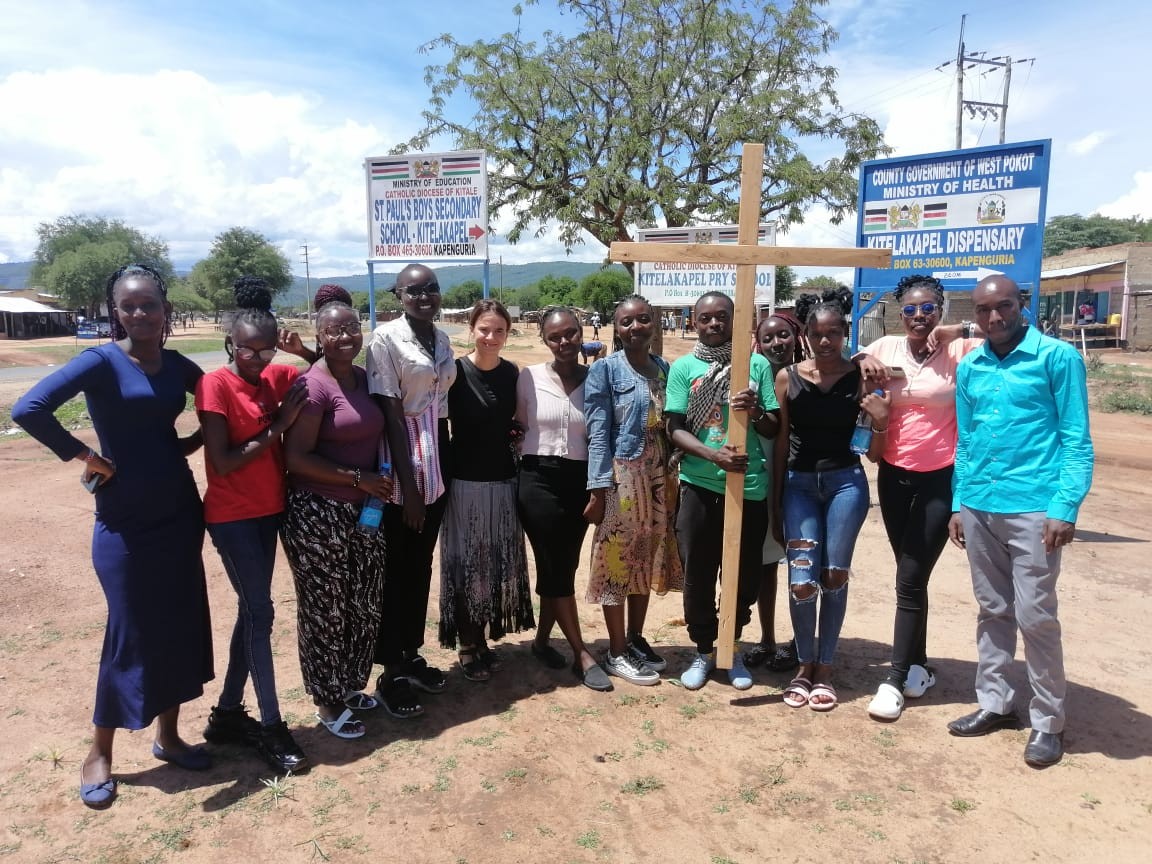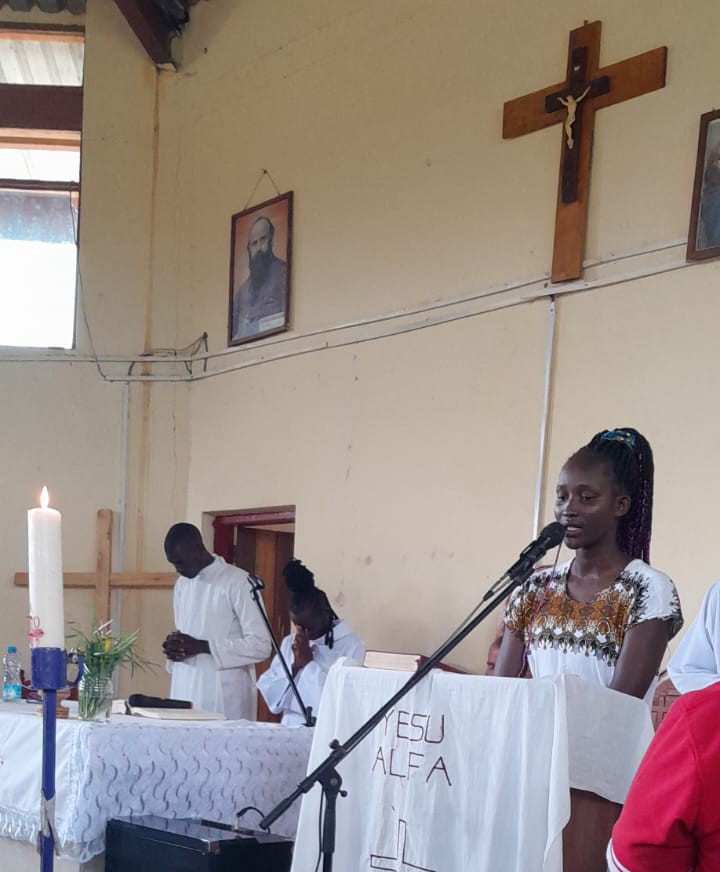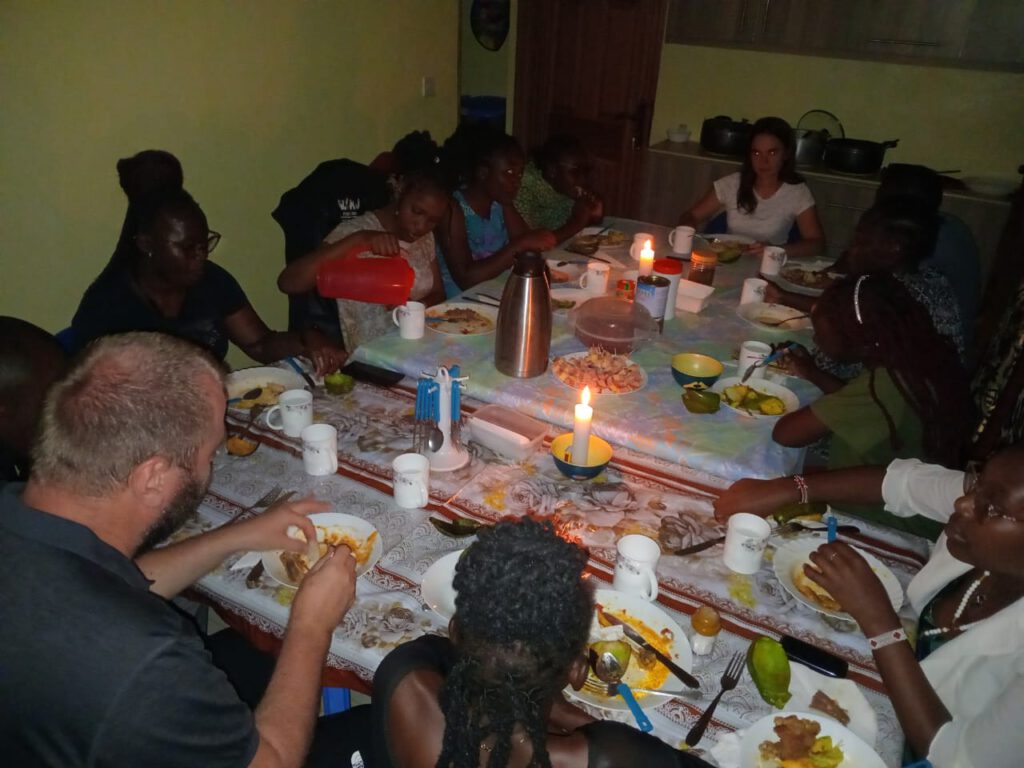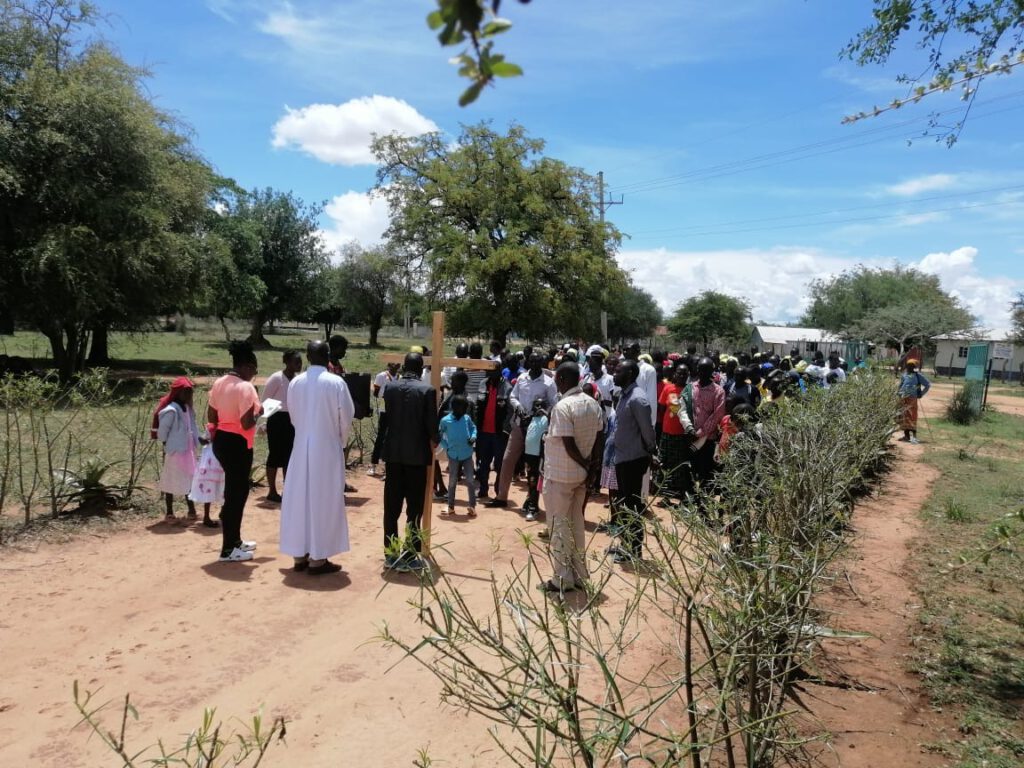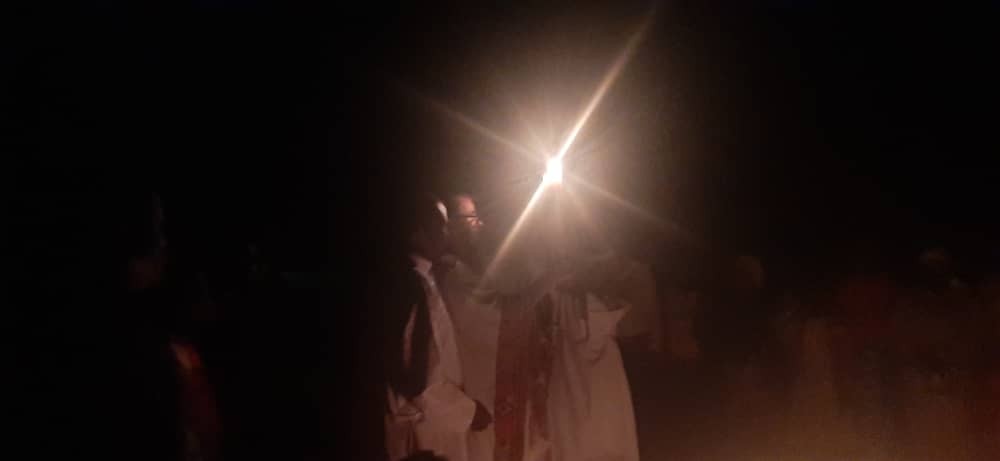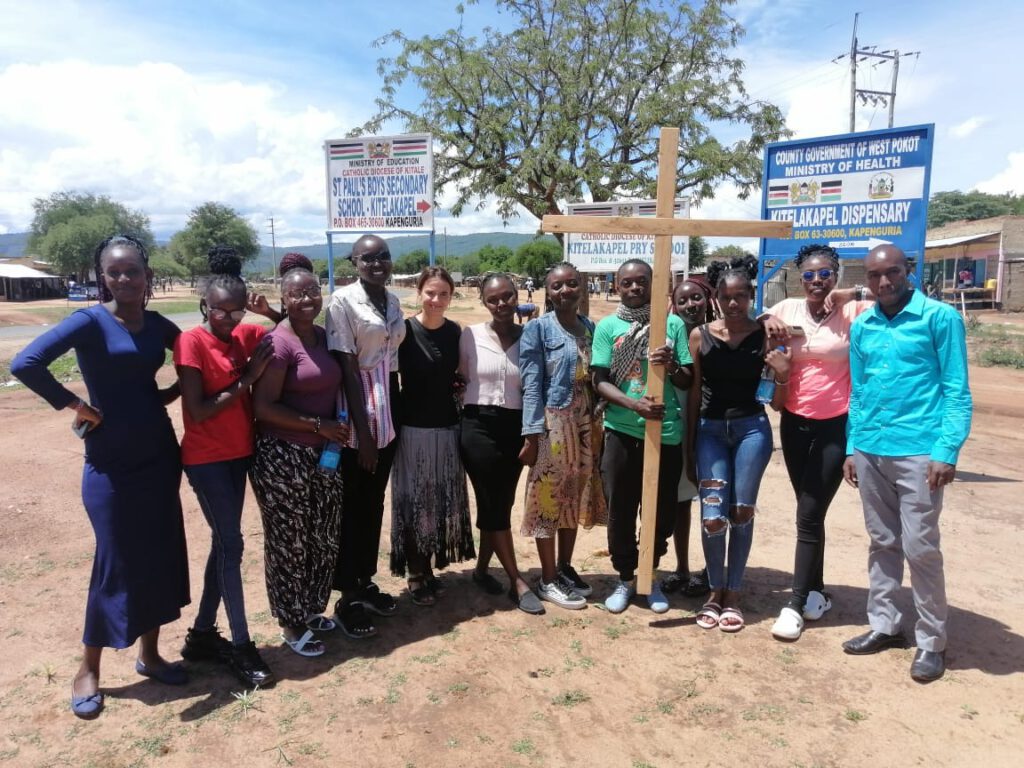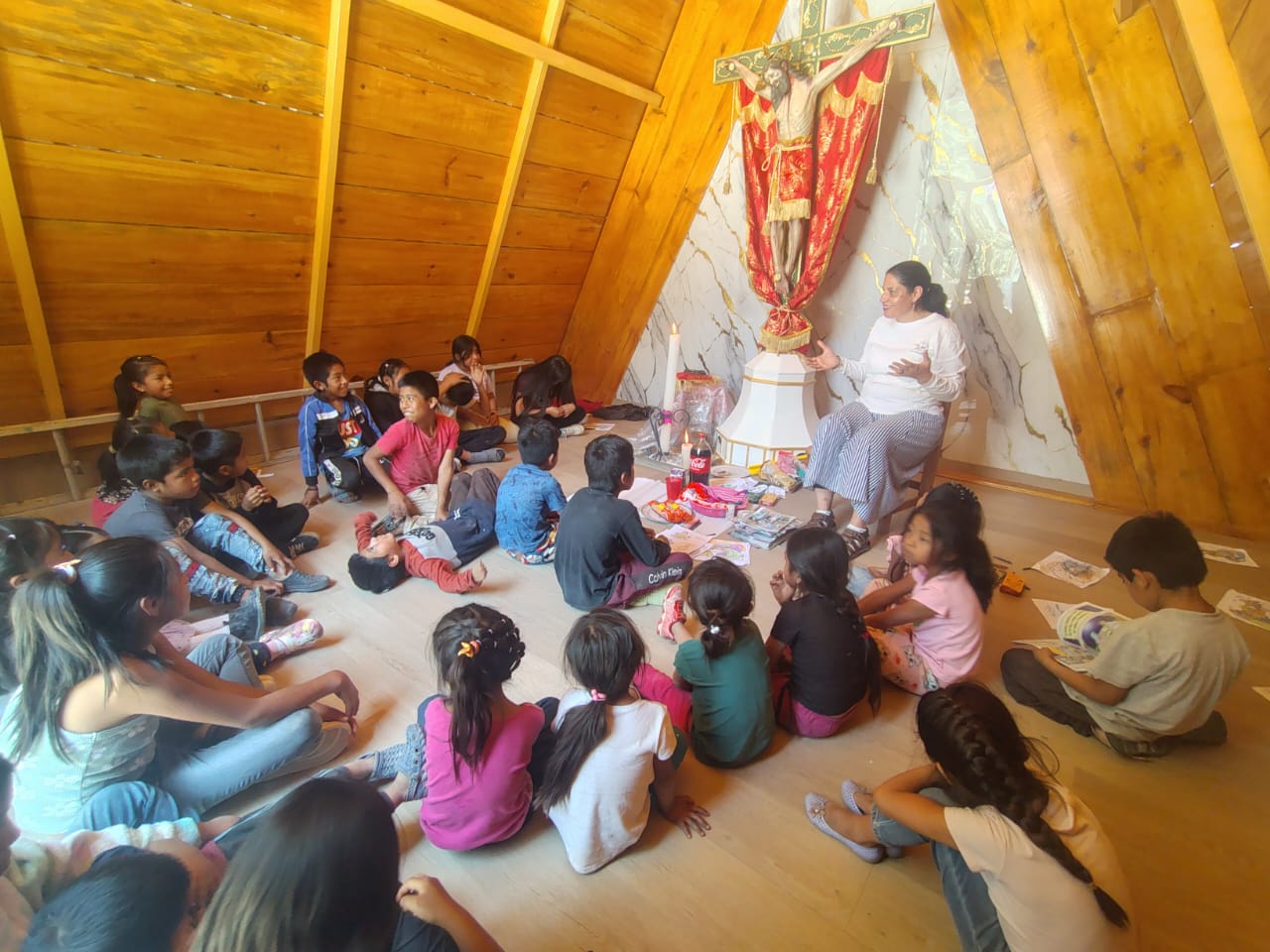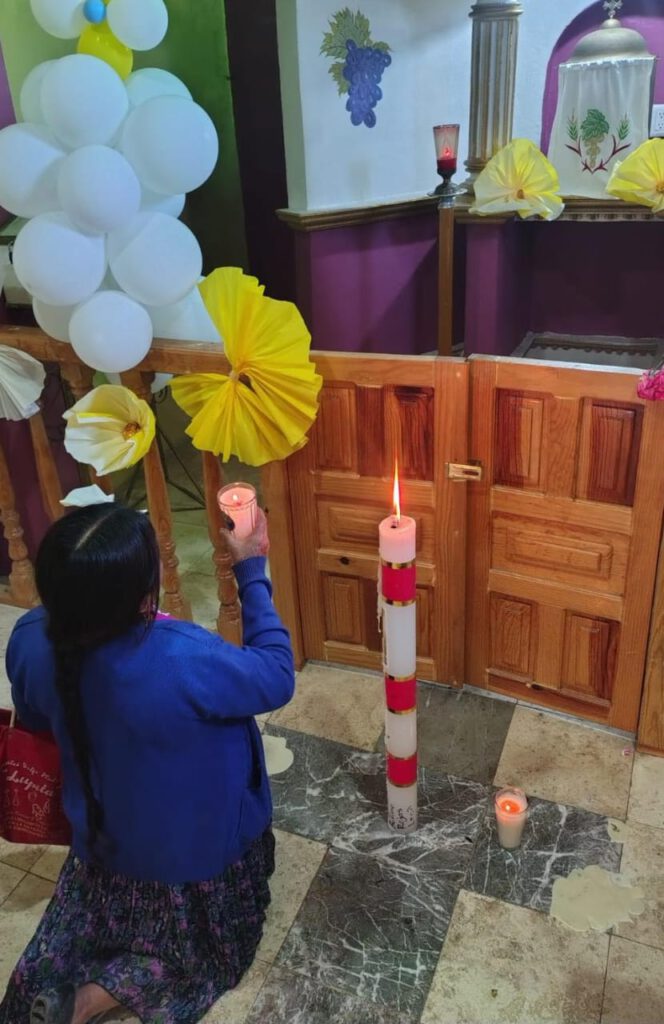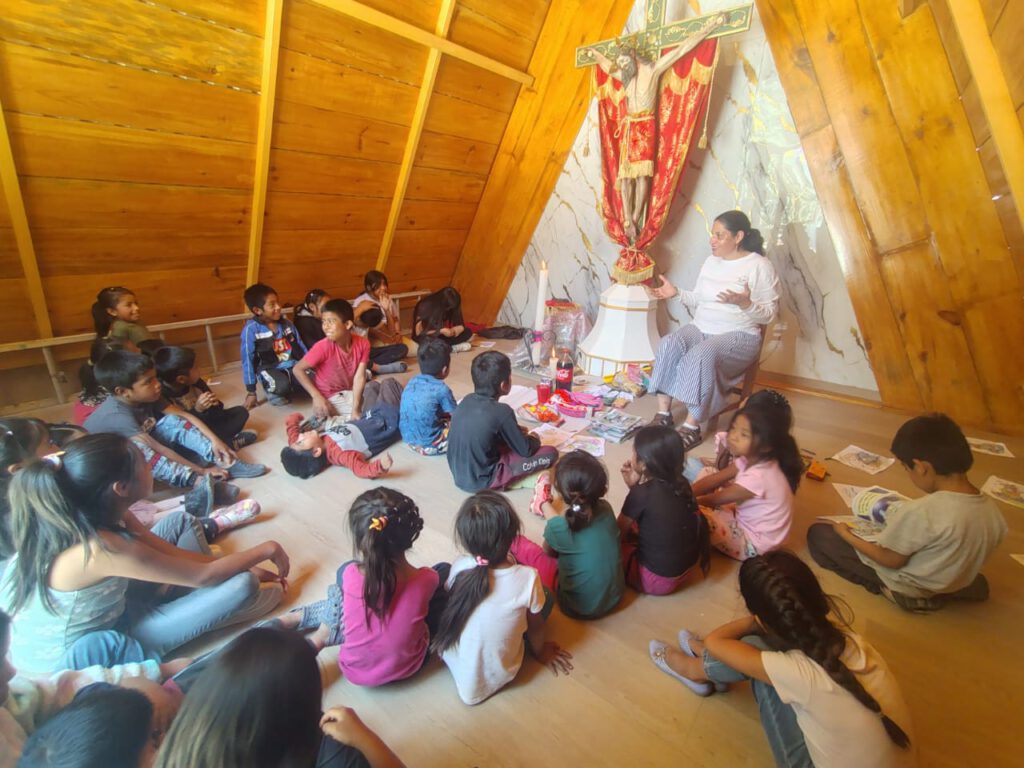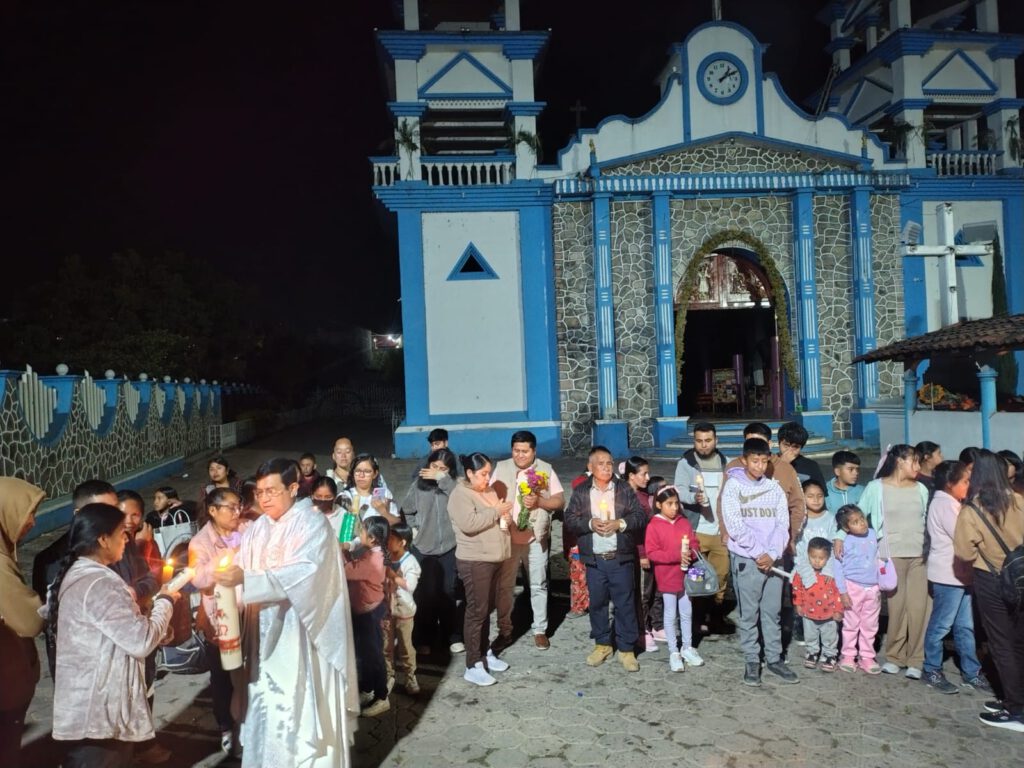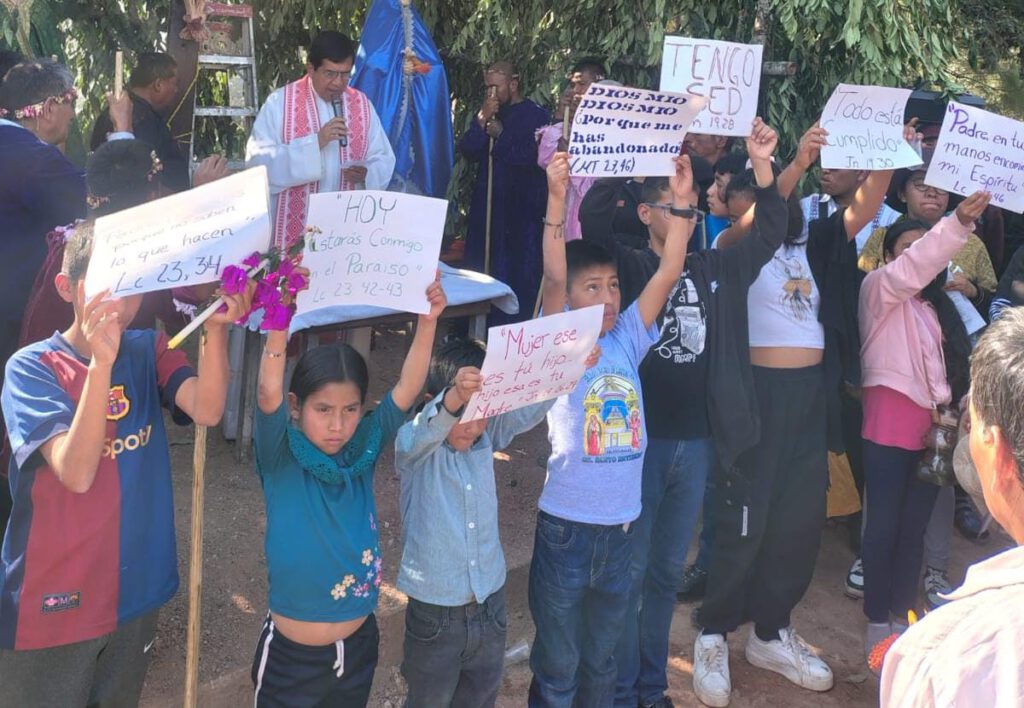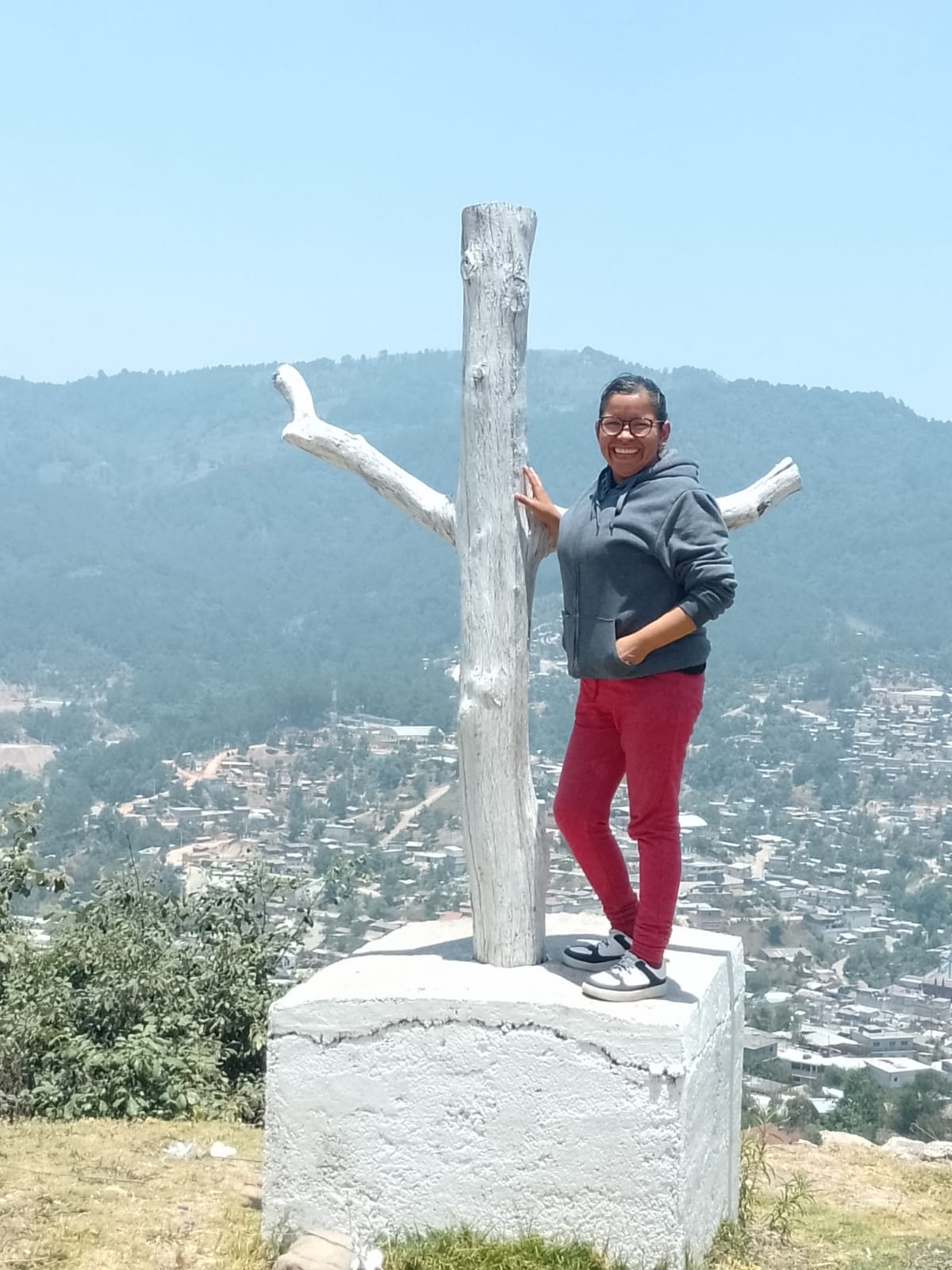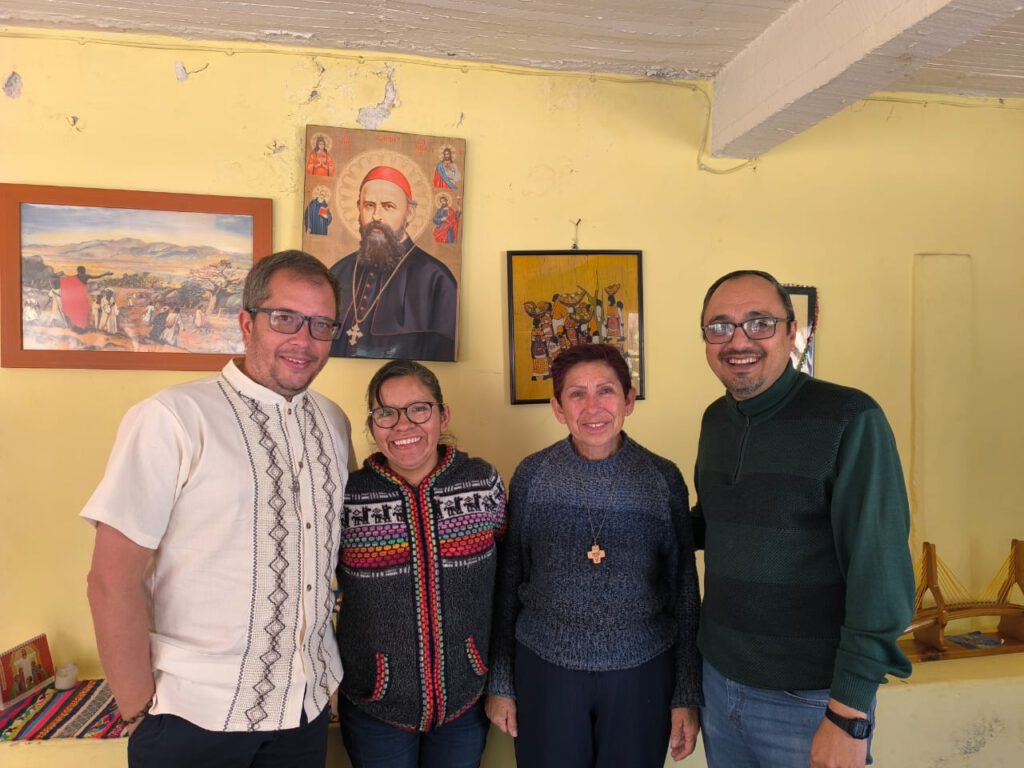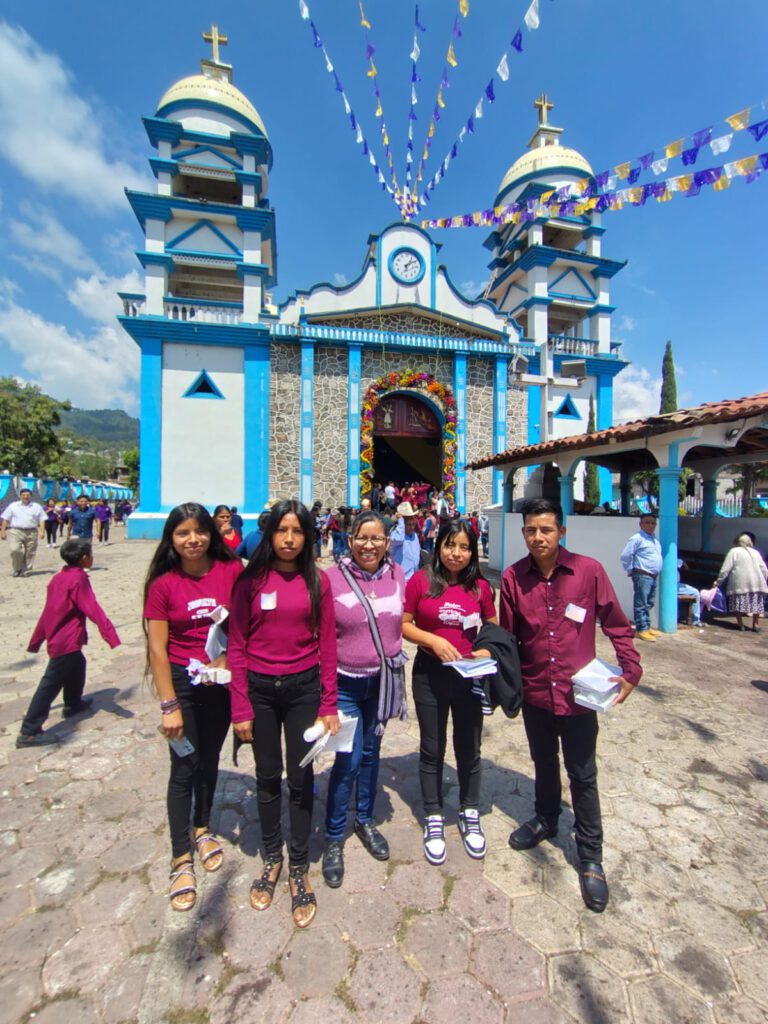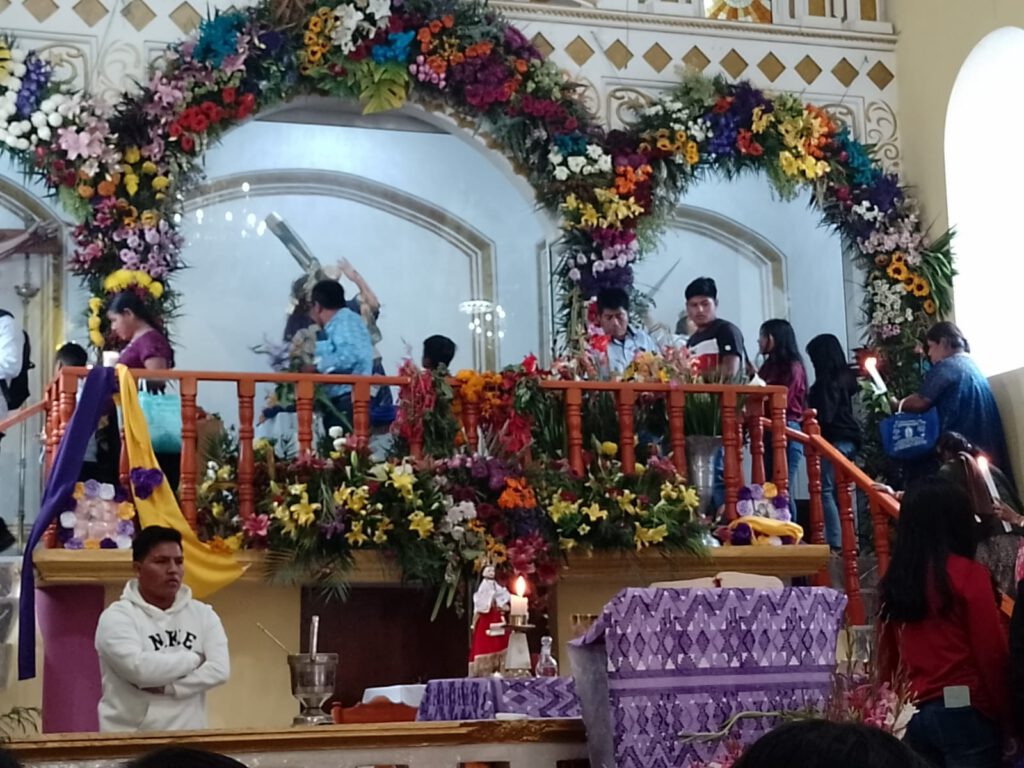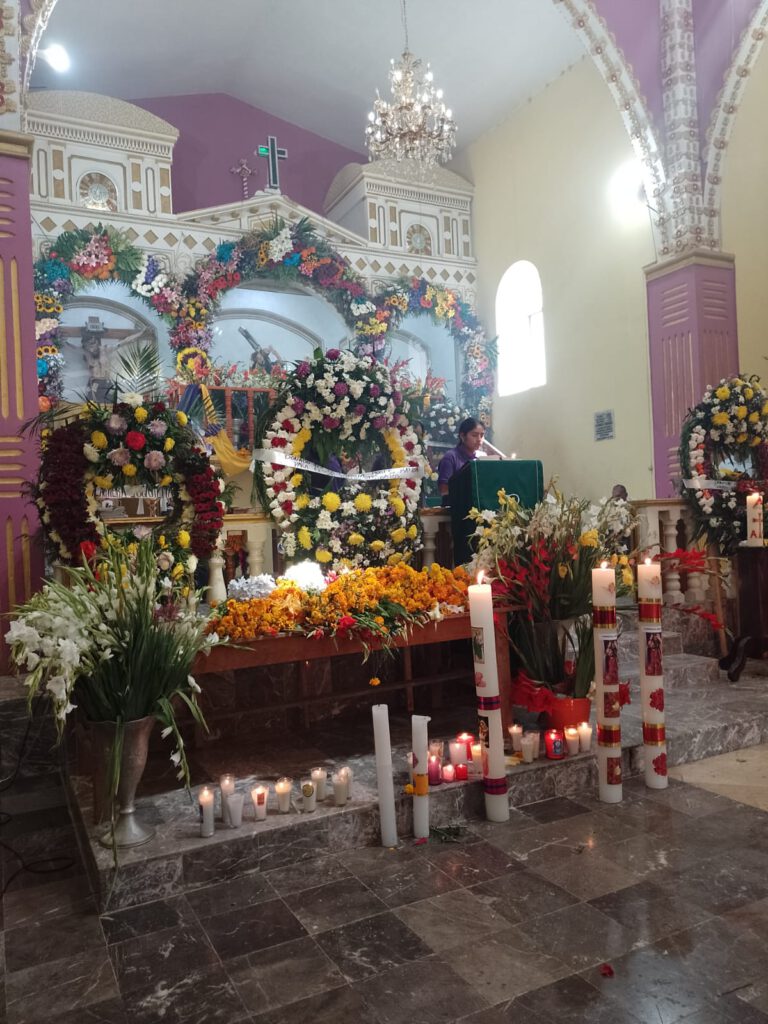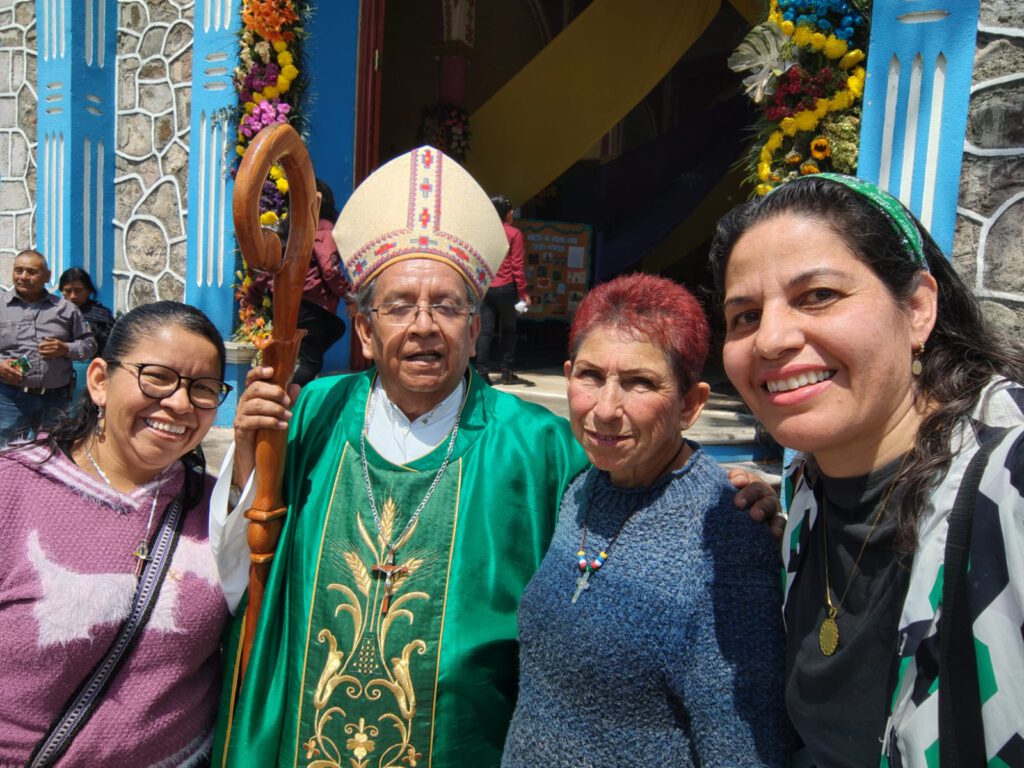Some years ago in a village, belonging to the parish of Mongoumba, there was a Christian family, engaged in the parish, the father, a catechist, had several children; one of them, Eloy, was 10 years old.
One day Eloy went to bathe in the river, as usual, and when he returned home he collapsed, without consciousness, and went into a coma.
His father quickly took him to the health center, where there was nothing they could do, because the center was very basic, and they directed him to the hospital in Mongoumba.
When they arrived at the hospital and admitted him, no one knew how to give an answer, the possibilities of doing tests, analysis are nonexistent, there is no equipment to do a CAT scan. And his father, Jean Batiste, not knowing what to do and where to call, went to seek comfort at the church and spoke to the parish priest; and from that moment on in community prayer, Eloy and his family were always present and we tried to support the family, both physically and spiritually.
We do not know how or why, but one day Eloy began to wake up, his body was still paralyzed.
The rehabilitation center “DA TI NDOYE”, which belongs to the parish, took him in. With everyone’s effort and hope, the physiotherapist began to work with him.
After a month of daily work and effort Eloy, in his wheelchair, began to attend the mission school, his dream was to play soccer.
In Mongoumba, he continued his life, as normal as possible, attended catechesis, as in his community, and received baptism and first communion.
One Sunday, during mass, at the moment of approaching communion and in front of everyone, he stood up and without anyone’s help he managed to get there by himself.
Ten years later, on Easter Sunday, I met Eloy in his community, with his friends; he is a young man of 20 years old, autonomous, who walks without any external support and has a smile that fills the heart of those who receive it.
Teresa Monzon, CLM Mongoumba




